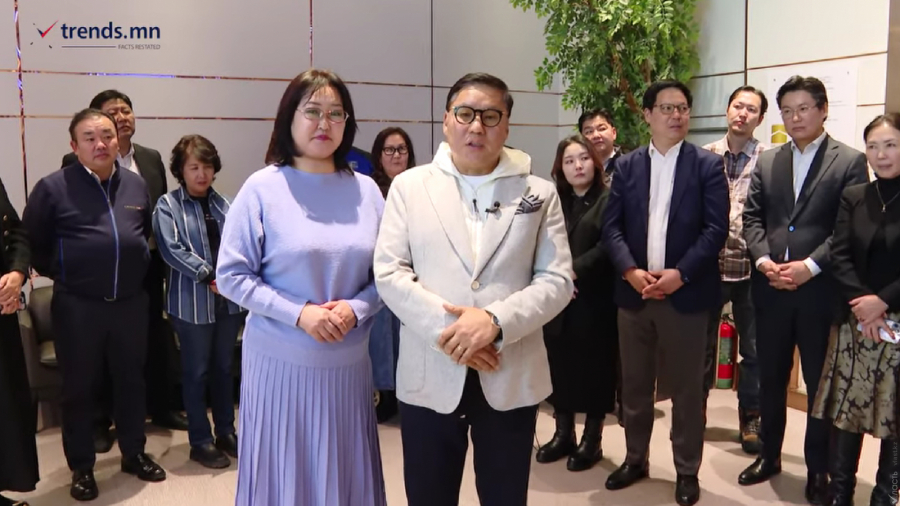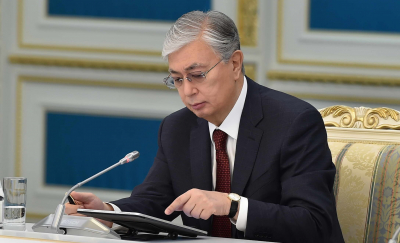Authorities are pro, businesses are against, and consumers are silent
This article was written by Nurbek Bekmurzaev for Global Voices. An edited version is published here under a media partnership agreement.
The month of December 2024 in Mongolia was filled with controversy around the interim free trade deal the country intends to sign with the Eurasian Economic Union (EEU), consisting of Russia, Belarus, Kazakhstan , Armenia, and Kyrgyzstan. The Mongolian government plans to sign a three-year free trade agreement with the bloc, removing all tariffs and quotas on 375 items and paving the way for local companies to gain access to large foreign markets with a total population of over 200 million people.
The negotiations started in 2019 but entered an active stage in 2024, with both sides expressing interest in completing the agreement by the end of 2024. In early December, the government shared a list of products that would be part of the trade agreement. The Mongolian side is hopeful that it will allow its economy to grow by exporting meat, wool, and leather products worth $15.5 billion.
The government is adamant that signing the agreement is in Mongolia’s best interests. Its main argument is that Mongolia’s economy cannot grow by catering to a small domestic market of 3.5 million people. This growth is expected to draw foreign investment, diversify the economy, and reduce dependence on the mining sector.
However, all the business stakeholders in the country seems to hold the exact opposite opinion. Representatives of Mongolian businesses, whom the deal will affect directly, have all spoken against it and called to either cancel or at least postpone its signing.
Here is a Facebook post with the Mongolian Food Workers’ Union expressing their disapproval of the the interim free trade deal with the Eurasian Economic Union.
Mongolian National Chamber of Commerce and Industry has expressed its worries that the deal will undermine national security by killing off local food production and creating dependence on other countries for food supplies. A coalition of professional associations consisting of the NGO Food Evolution, the Food Producers’ Union, the National Association of Veterinarians and Breeders, and the Farmers’ Union has done the same.
The Chamber of Commerce added that trading with Russia and Belarus, two pariah states under unprecedented number of sanctions, poses reputational and financial risks that may scare away potential investors and result in secondary sanctions.
Director of Food Evolution, T. Monkhtor, forecasted that Russian food products, such as dairy, wheat, and flour, which are cheaper and higher quality, will flood the Mongolian market and bankrupt local companies. His estimate is that will take only one year for this grim scenario to take place. The consequences could be catastrophic with hundreds of thousands losing their jobs and sources of income.
He also recalled the failure of the free trade agreement Mongolia signed with Japan in 2017. The deal benefitted only Japan with its exports to Mongolia growing from $300 million in 2017 to $600 million in 2023. Mongolia’s exports to Japan grew only by $3 million, from $15 to 18 million. The fear is that the deal with the EEU will have a similar outcome but with a devastating effect.
L. Erkhembayar, Chairman of the Board of Directors of the LLC Tumen Shuvuut, criticizing the agreement at the meeting with the authorities.
On December 18, the government partially gave in to these demands and agreed to postpone the negotiations. Deputy prime minister S. Amarsaikhan announced that the deal will not be suspended. Instead, the government will proceed in consultation with non-state actors, soliciting their feedback and possibly restructuring the agreement. What appears to be an interim victory for local food producers is a loss for consumers, who ultimately bear the cost of their country’s attempts to sustain its food industry.
Власть — это независимое медиа в Казахстане.
Поддержите журналистику, которой доверяют.
Мы верим, что справедливое общество невозможно построить без независимой журналистики и достоверной информации. Наша редакция работает над тем чтобы правда была доступна для наших читателей на фоне большой волны фейков, манипуляций и пропаганды. Поддержите Власть.
Поддержать Власть












